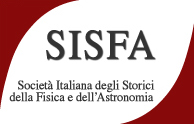Speaker
Description
Smithsonian Institute, Washington DC, 22-25 April 1973. At the commemorative symposium for the 500th anniversary of the birth of Copernicus (1473-1543), John Archibald Wheeler (1911-2008), designated chairman of the event, shakes up the conference with a lecture which has, apparently, a strong "anthropic" flavor: The Universe as Home for Man. Is it just one of the ironies of history? A naïve mistake? Or even a provocation? The audience did not fail to notice the paradoxical situation - but was it really possible that such an eminent physicist was making such a childish error? This paper will provide an interpretative key to Wheeler's highly original and baffling speculations, properly identifying the traits that - he thought - were bringing the legacy of Copernicus to a new level. To do that, it is first necessary to understand Wheeler's speech within the crisis of his previous general relativity-based program, which led him to re-evaluate Bohr's lesson and the participative role of the observer. This, in turn, got intertwined with the questions raised by his Princeton colleague Robert Dicke and by Brandon Carter (to whom the expression "anthropic principle" is usually credited) about the fine-tuning of natural constants. Wheeler would not stop there, however, and in the following years, he would make explicit his "Copernican" insights, decentering the anthropomorphic traits that were indeed present in his 1973 contribution and proposing a new picture of the universe.

